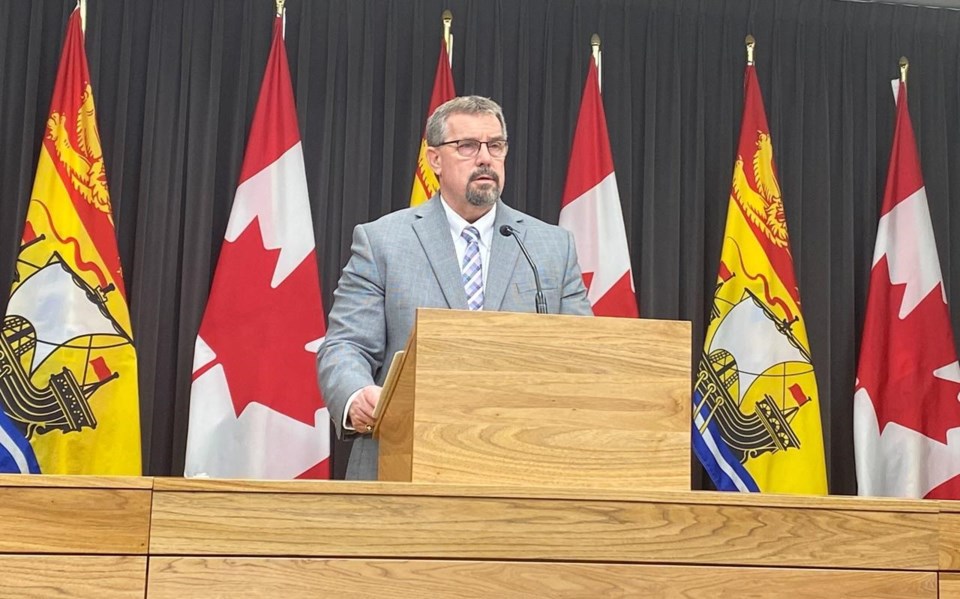FREDERICTON — Elected councils overseeing francophone school districts in New Brunswick are not immune from being dissolved if they don’t adhere to the province’s policy change affecting LGBTQ+ students, the education minister says.
Bill Hogan was asked in the legislature Wednesday why he began steps to dissolve an anglophone school district council that is against applying the new gender identity policy when he has not acted against francophone school districts that also oppose the policy.
"If they refuse to follow the directive of corrective action that was issued, then we're going to follow the process that's available under the Education Act to all the (district education councils)," he said. "We’re not just going to pick one out."
The Anglophone East district education council is asking a court to prevent the government from forcing it to apply changes made last year to what is known as Policy 713. The policy now requires students under 16 who are exploring their gender identity to have parental consent in order for teachers to use their preferred pronouns or first name at school — a reversal of the original policy.
In a preliminary motion filed in April, the district said the policy change violates the Charter of Rights and Freedoms as well as the province's Human Rights Act and Education Act. The province must present written submissions to the court by May 16, and hearings are scheduled for June 18 and 19.
The school district, which administers schools in the Moncton area, said in the filing that it chose to adopt its own guidelines, directing staff to use students' preferred names and pronouns regardless of age.
Soon after, it says, Hogan instructed school officials to fall in line with the government's changes and threatened to dissolve any school districts that do not adhere to the policy.
The minister did not make himself available for an interview Thursday.
Speaking to reporters Wednesday, Hogan was asked if Section 23 of the Canadian Charter of Rights and Freedoms, which protects minority language rights in education, will prevent him from being able to dissolve the francophone school district council. The minister said he doesn't know how to answer that question, and his department did not answer questions Thursday about the legality of dissolving the French school districts.
New Brunswick's three francophone school districts did not immediately respond to requests for comment.
The changes to Policy 713 have been widely criticized by advocates for LGBTQ+ students, but Premier Blaine Higgs has maintained that parents have the right to know if their children are questioning their gender identity.
In September, the Canadian Civil Liberties Association filed a court action seeking to overturn key aspects of the policy. It argues that the original Policy 713 was consistent with pediatric and education guidelines, and failure to affirm an LGBTQ+ student's identity can lead to negative educational and health outcomes, including increased risk of depression, anxiety, eating disorders, self-harm and suicide.
This report by The Canadian Press was first published May 9, 2024.
— By Lyndsay Armstrong in Halifax.
The Canadian Press

